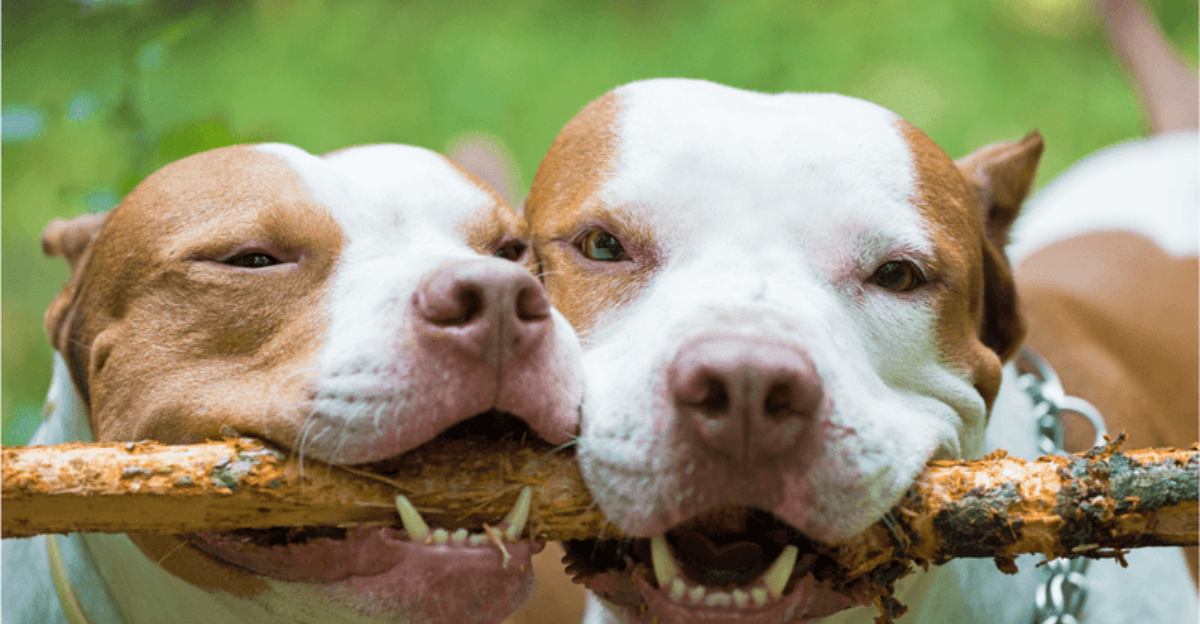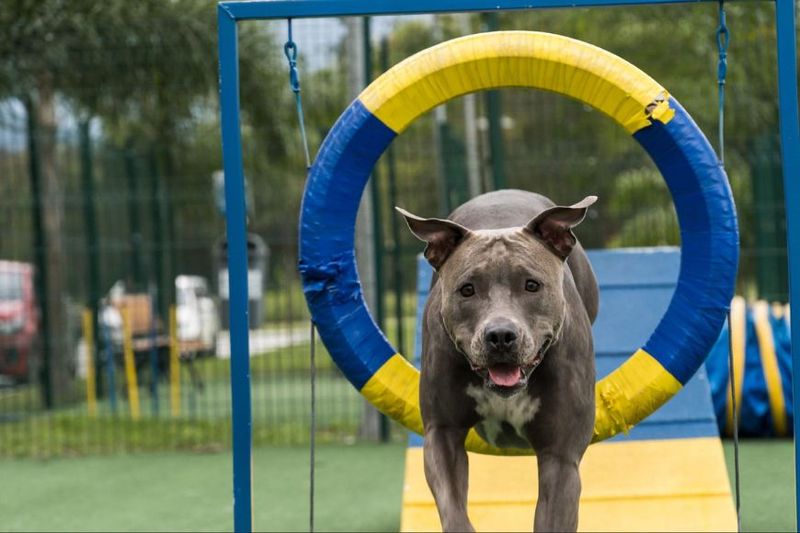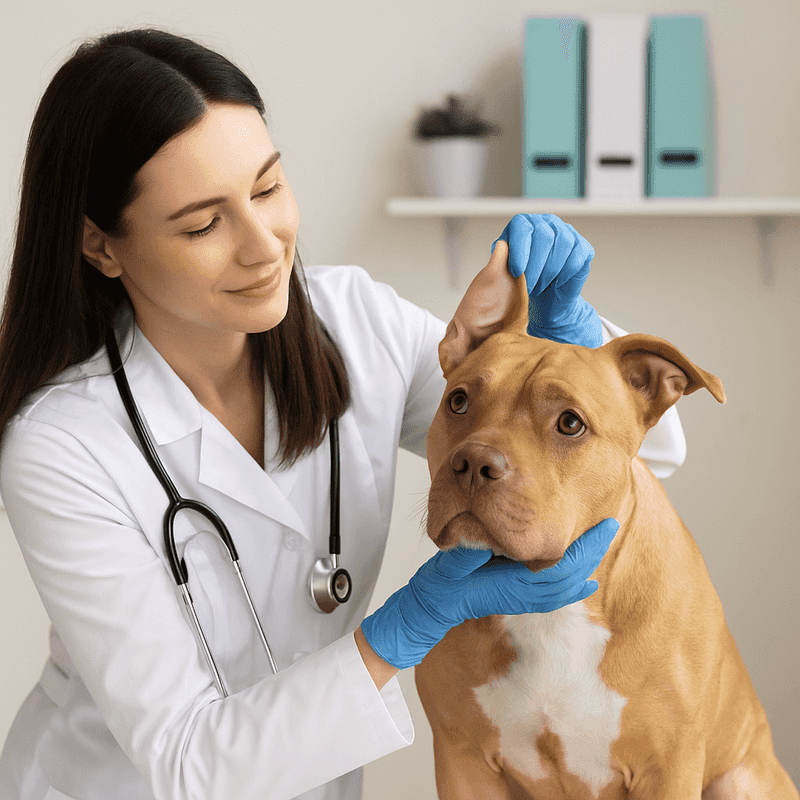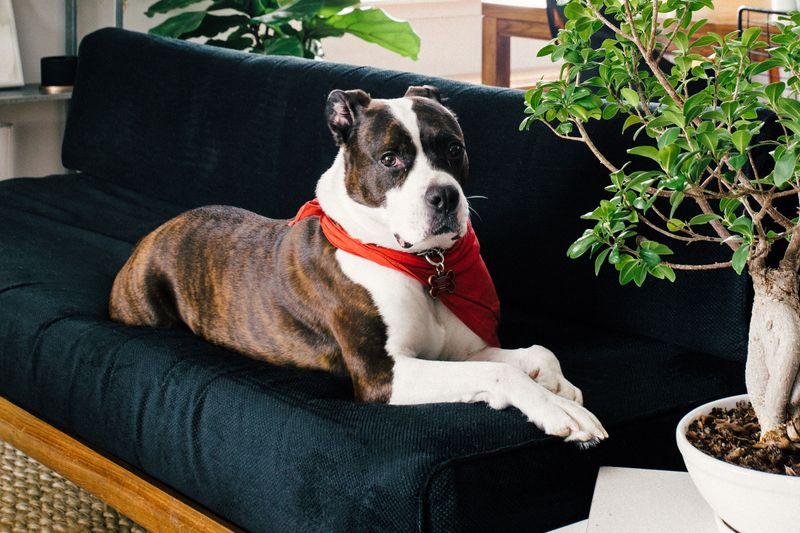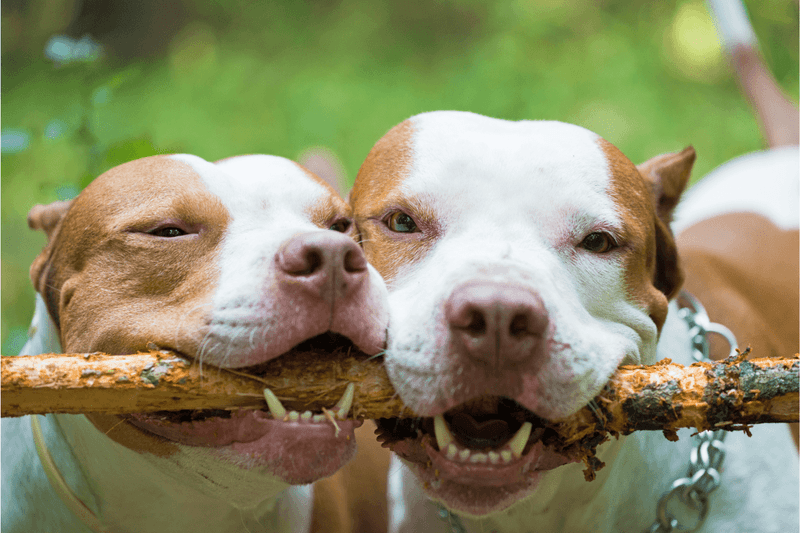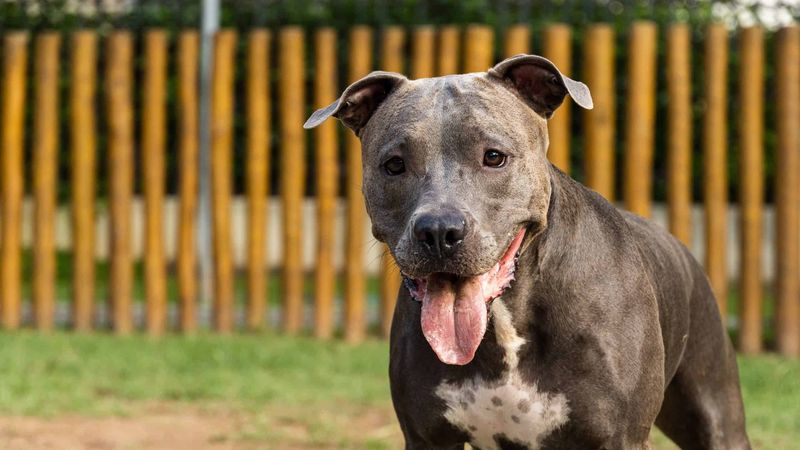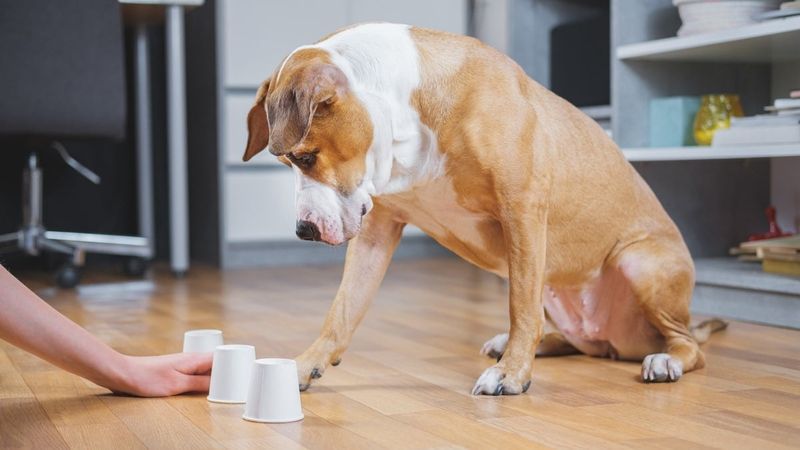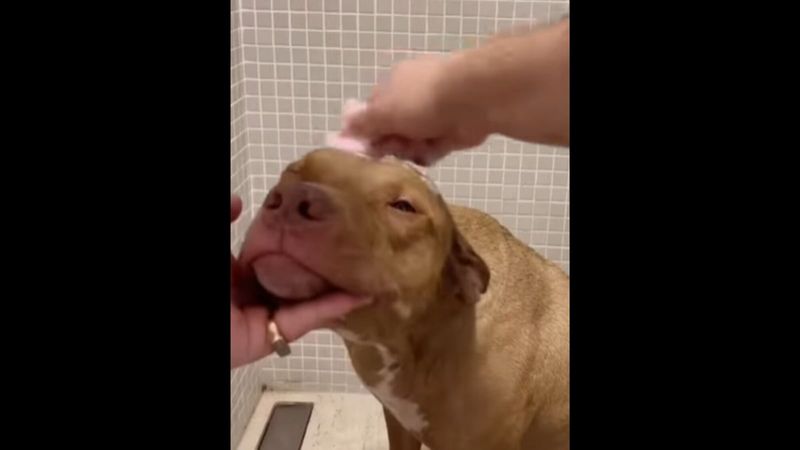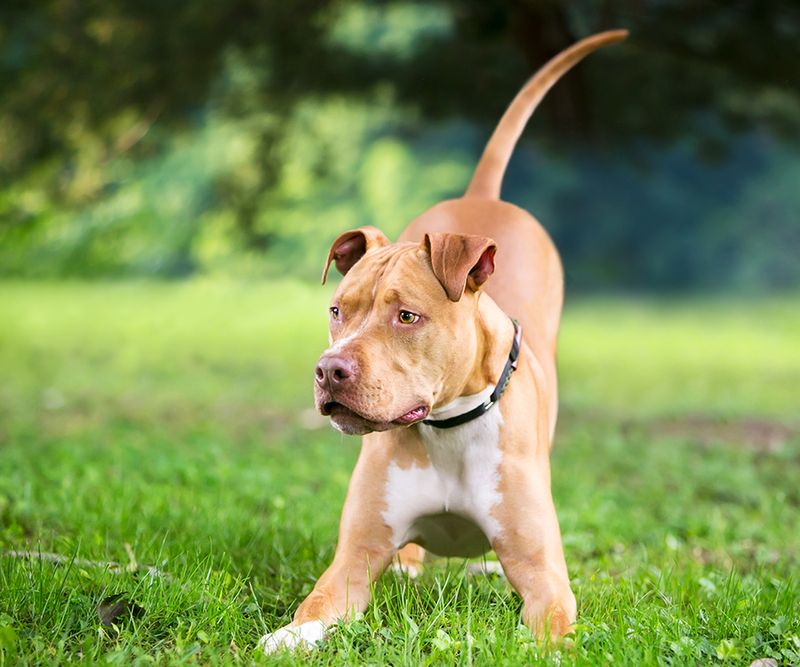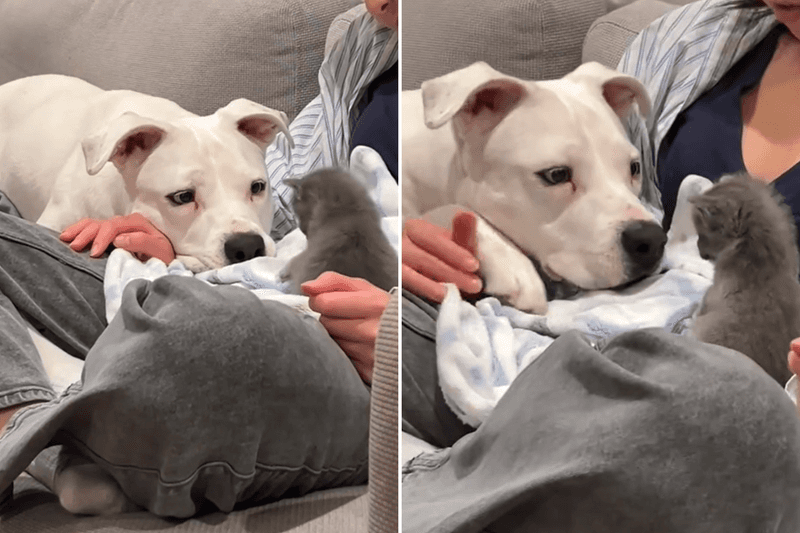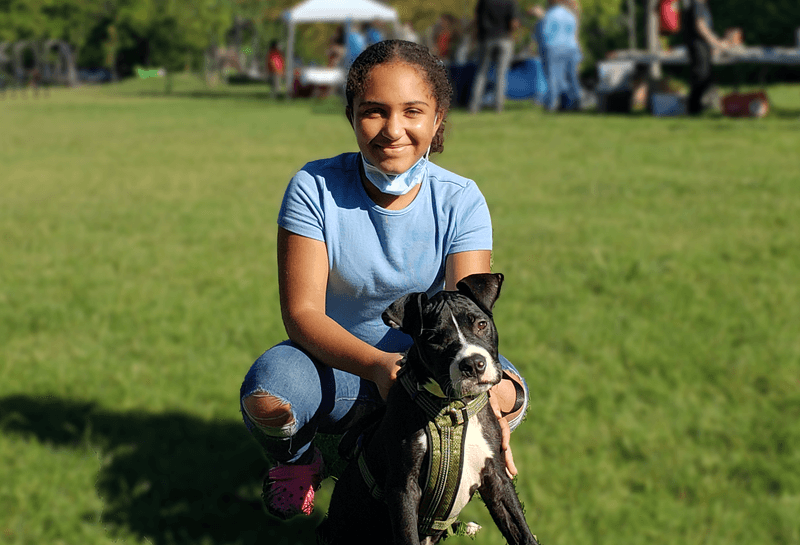Raising a pit bull can be a rewarding experience, as these loyal and affectionate dogs form strong bonds with their families. However, they require proper care and attention to ensure they grow up healthy and well-behaved. This guide provides expert-approved rules to help you raise a robust and happy pit bull.
Consistent Training
Consistent training is crucial for a well-mannered pit bull. Start with basic commands like ‘sit,’ ‘stay,’ and ‘come,’ using positive reinforcement techniques. Training sessions should be short, engaging, and consistent to maintain your dog’s interest. Over time, introduce more complex commands and tricks, keeping your pit bull mentally stimulated. Consistency is key; ensure all family members use the same commands and rewards. This approach prevents confusion and reinforces learning. A well-trained pit bull is not only obedient but also happier, as they understand what’s expected of them. Ultimately, training strengthens the bond between you and your dog.
Balanced Diet
A balanced diet is fundamental to your pit bull’s health. Ensure their meals are rich in protein, healthy fats, and essential vitamins. High-quality commercial dog food, supplemented with fresh vegetables, can provide the necessary nutrients. Monitor their weight and adjust portions accordingly to prevent obesity. Frequent weight checks help maintain optimal health. Moreover, always provide access to fresh water to keep your dog hydrated. Avoid feeding them human foods that are toxic to dogs, such as chocolate or grapes. With the right diet, your pit bull will thrive, exhibiting a shiny coat and vibrant energy.
Regular Exercise
Pit bulls are energetic dogs that require regular exercise to stay healthy and happy. Daily walks, play sessions, and activities like fetch or agility training can help burn off excess energy. These activities not only keep your pit bull physically fit but also mentally stimulated. Incorporate variety into their routine to prevent boredom. Remember, a tired pit bull is a well-behaved pit bull. Regular exercise also strengthens the bond between you and your pet, as you share enjoyable experiences together. By fulfilling their exercise needs, you ensure your pit bull leads a balanced and content life.
Veterinary Care
Regular veterinary care is vital for your pit bull’s long-term health. Schedule routine check-ups, vaccinations, and dental cleanings to prevent potential health issues. Early detection of problems can lead to more effective treatments. Additionally, discuss flea, tick, and heartworm prevention with your vet. Regular vet visits also include monitoring your pet’s weight and overall condition. Building a relationship with your veterinarian allows for personalized care tailored to your dog’s specific needs. By prioritizing veterinary care, you ensure your pit bull remains healthy and happy throughout their life, enjoying many adventures together.
Positive Reinforcement
Positive reinforcement is a powerful tool in training and nurturing your pit bull. Reward desired behaviors with treats, praise, or playtime, reinforcing good conduct. This method encourages your dog to repeat positive actions, forming good habits. Avoid using punishment, as it can foster fear or aggression. Instead, focus on rewarding progress and setting achievable goals. Consistency in rewarding is key to a successful positive reinforcement strategy. Over time, your pit bull will associate good behavior with positive outcomes. This approach not only shapes behavior but also strengthens the trust and bond between you and your dog.
Proper Socialization
Socializing your pit bull from an early age is essential for developing a balanced temperament. Expose them to different environments, people, and animals to help them adapt to various situations. For instance, organized playdates or visits to local parks can introduce your dog to new experiences. These interactions build confidence, reduce fear, and mitigate aggressive tendencies. Socialization isn’t just about exposure; it’s about positive experiences. Remember to reward your pit bull with treats and praise during these interactions, reinforcing good behavior. By nurturing a well-socialized dog, you’re laying the groundwork for a harmonious relationship with your community.
Safe Environment
Creating a safe environment for your pit bull is crucial to their well-being. Ensure your home and yard are secure, with no escape routes or hazardous substances accessible. Provide comfortable spaces for rest, such as a supportive dog bed. Chew toys and interactive games keep them entertained and prevent destructive behavior. Supervise interactions with children and other pets to ensure safety. A peaceful environment helps your pit bull feel secure, reducing anxiety and promoting relaxation. By prioritizing safety, you create a haven where your dog can thrive, leading to a harmonious household.
Mental Stimulation
Mental stimulation is as important as physical exercise for your pit bull. Puzzle toys, training games, and learning new tricks can keep their minds sharp. Regularly introduce new challenges to prevent boredom and encourage curiosity. Mental engagement can reduce unwanted behaviors, such as excessive barking or chewing, by providing an outlet for their intelligence. Interactive play also strengthens your bond as you work together to solve problems. By nurturing their mental faculties, you’re supporting your pit bull’s overall well-being, ensuring they remain a lively and content companion.
Proper Grooming
Proper grooming is essential for maintaining your pit bull’s health and appearance. Regular brushing helps control shedding and keeps their coat shiny. Bathing should be done as needed, using dog-specific shampoo to prevent skin irritation. Don’t forget to trim their nails and clean their ears to prevent infections. Grooming sessions also offer an opportunity to check for any skin issues or parasites. By making grooming a positive experience, your pit bull will come to enjoy these sessions. Ultimately, proper grooming contributes to their well-being, ensuring they look and feel their best.
Understanding Body Language
Understanding your pit bull’s body language is key to effective communication. Pay attention to signals like wagging tails, raised hackles, or relaxed postures to gauge their mood. This awareness helps in addressing concerns or reinforcing positive behavior. For instance, a wagging tail may indicate happiness, while a stiff posture could signal discomfort. By observing these cues, you can respond appropriately, whether by providing comfort or redirecting attention. This understanding fosters trust, ensuring a harmonious relationship. Additionally, recognizing body language can prevent potential conflicts with other animals or people, enhancing safety and companionship.
Patience and Love
Raising a pit bull requires patience and love. Building trust and understanding takes time, especially with rescue dogs who may have past trauma. Show consistent affection and provide a stable environment to nurture their confidence. Quality time together, like play sessions or quiet cuddles, strengthens your bond. Remember, each pit bull is unique, with individual needs and personalities. Celebrate their progress and offer support when challenges arise. Your patience and love will be rewarded with a loyal and devoted companion, enriching your family’s life with joy and friendship.
Community Involvement
Involving your pit bull in community activities fosters social skills and strengthens public perception. Attend pet-friendly events or dog meet-ups to showcase their positive traits. These interactions help dispel stereotypes and promote responsible ownership. Community involvement also provides opportunities for training and socialization, enhancing your dog’s adaptability. By participating in local initiatives, you contribute to a supportive network of pet owners. This engagement not only benefits your pit bull but also enriches your community, fostering a sense of belonging and mutual respect among participants.
